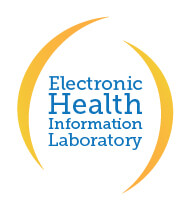Insufficient patient accrual is a major challenge in clinical trials and can result in underpowered studies, as well as exposing study participants to toxicity and additional costs, with limited scientific benefit. Our speakers Samer El Kababji, Lucy Mosquera and Khaled El Emam, present the results of a project evaluating the use of generative models to simulate additional patients in insufficiently accruing trials, and therefore allowing the trials to reach target recruitment. Participant data that has already been collected was used to train a generative model and the model then used to create virtual patients. This method was evaluated on 9 completed oncology clinical trials in a retrospective simulation, and the results demonstrate that the published findings from the full trials can be replicated even if the trial only collects data on the first 60% of the patients. We also found that early (recruited) patients are not different from later (recruited) patients on the effect size, explaining why early patients can can be used to train generative models to simulate additional patients. This work can provide a mechanism to draw meaningful conclusions from clinical trials, even if accrual targets cannot be reached, and to still learn from clinical trials even if accrual targets cannot be reached.
The research results have been recently published in Journal of Medical Internet Research - Augmenting Insufficiently Accruing Oncology Clinical Trials Using Generative Models: Validation Study.
SPEAKER BIOS
Dr. Samer El Kababji is an Associate Scientist at the CHEO Research Institute. His work focuses on AI applications in the health sector, with an emphasis on generative models for synthetic data generation. By leveraging advanced AI techniques, Samer aims to enhance data privacy, improve predictive analytics, and support innovation in healthcare and beyond. Samer is a Professional Engineer who earned his PhD in Electrical and Computer Engineering from Western University in Ontario.
Lucy Mosquera was the first employee at the Canadian start up Replica Analytics where she led the development of synthetic data generation algorithms and privacy assessment tools for applications in the health data space. Replica Analytics was acquired by Aetion (an American Real World Data company) in early 2022. Now Lucy is a Senior Director at Aetion, focusing on Data Science and Operations for their synthetic data software group. Lucy is also a research fellow at the Electronic Health Information Laboratory and completed her Masters in Biostatistics at the University of British Columbia.
Dr. Khaled El Emam is the Canada Research Chair (Tier 1) in Medical AI at the University of Ottawa, where he is a Professor in the School of Epidemiology and Public Health. He is also a Senior Scientist at the Children’s Hospital of Eastern Ontario Research Institute, and Scholar-in-Residence at the Office of the Information and Privacy Commissioner of Ontario (IPC). Khaled has founded or co-founded six product and services companies involved with data management and data analytics, with some having successful exits. Prior to his academic roles, he was a Senior Research Officer at the National Research Council of Canada. He also served as the head of the Quantitative Methods Group at the Fraunhofer Institute in Kaiserslautern, Germany. He has a PhD from the Department of Electrical and Electronics Engineering, King’s College, at the University of London, England.
